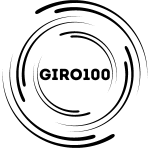Maintaining a healthy intestinal system is crucial for overall well-being. The intestines play a fundamental role in digesting food, absorbing nutrients, and eliminating waste from the body. However, many people overlook the importance of intestinal health until issues arise, which can lead to a range of uncomfortable symptoms and health problems.
The digestive tract, often referred to as the gut, is home to a complex ecosystem of microorganisms that aid in digestion and support immune function. When this balance is disrupted, it can result in various gastrointestinal issues, such as bloating, constipation, diarrhea, and even more severe conditions like irritable bowel syndrome (IBS) and inflammatory bowel disease (IBD).
Understanding how to effectively cleanse and support intestinal health can make a significant difference in how we feel and function daily. This article will explore the science behind intestinal cleansing, various methods to achieve it, and practical tips to ensure a successful and beneficial cleanse. By focusing on these aspects, you can better manage your digestive health and contribute to your overall quality of life.
The Science Behind Intestinal Cleansing
How the Intestines Work
The intestines are vital components of the digestive system, consisting of the small and large intestines. The primary function of the small intestine is to digest food and absorb nutrients, while the large intestine absorbs water and forms waste. Together, these organs maintain a delicate balance that supports overall health. The intestines are lined with a mucosal layer that plays a crucial role in nutrient absorption and protection against harmful substances.
What Intestinal Cleansing Aims to Achieve
Intestinal cleansing aims to remove accumulated waste, toxins, and excess mucus from the digestive tract. By doing so, it can potentially improve digestion, boost energy levels, and enhance overall well-being. A clean intestinal environment supports better nutrient absorption and may help alleviate symptoms associated with digestive discomfort. However, it’s important to understand that cleansing should be approached thoughtfully and not as a quick fix for underlying health issues.
Methods for Intestinal Cleansing
Dietary Adjustments
- High-Fiber Foods
Increasing dietary fiber is one of the most effective ways to promote healthy digestion and regular bowel movements. Fiber, found in fruits, vegetables, whole grains, and legumes, adds bulk to the stool and helps it move more smoothly through the intestines. This can help prevent constipation and support the natural detoxification process of the body. - Probiotics and Prebiotics
Probiotics are beneficial bacteria that support gut health by maintaining a balanced microbiome. They can be found in fermented foods like yogurt, kefir, and sauerkraut. Prebiotics, found in foods such as bananas, onions, and garlic, feed these beneficial bacteria, enhancing their effectiveness. Together, they contribute to a healthy gut environment and aid in digestion.
Natural Cleansing Techniques
- Herbal Teas and Supplements
Certain herbs are known for their digestive benefits and can be used to support intestinal health. Herbal teas like peppermint, ginger, and chamomile can soothe the digestive tract and alleviate symptoms like bloating and gas. Supplements such as psyllium husk and aloe vera can also aid in digestion and promote regular bowel movements. - Juice Cleanses
Juice cleanses involve consuming fresh fruit and vegetable juices to provide the body with essential nutrients while giving the digestive system a break from solid foods. While juice cleanses can help increase nutrient intake and hydration, it’s important to ensure they are balanced and include a variety of vegetables and fruits to avoid excessive sugar intake.
Medical Procedures
- Colon Hydrotherapy
Colon hydrotherapy, or colon cleansing, involves flushing the colon with water to remove accumulated waste. This procedure is performed by a trained therapist and is believed to help remove toxins and improve digestion. However, it’s essential to consult with a healthcare professional before undergoing this procedure, as it may not be suitable for everyone. - Prescription Cleanses
Prescription cleanses involve the use of specific medications or solutions designed to cleanse the intestines. These are typically used for medical reasons, such as preparing for a colonoscopy. It’s crucial to follow the guidance of a healthcare provider when using these products to ensure safety and effectiveness.
Tips for Effective Intestinal Cleansing
Preparing Your Body
- Gradual Changes in Diet
Start by making gradual changes to your diet to ease your body into the cleansing process. Introduce more fiber-rich foods and reduce processed and high-fat foods slowly to avoid digestive discomfort. - Staying Hydrated
Hydration is key to a successful cleanse. Drink plenty of water throughout the day to support digestion and help flush out toxins. Proper hydration also helps maintain regular bowel movements and overall gut health.
During the Cleanse
- Monitoring Symptoms
Pay close attention to how your body responds during the cleanse. Common symptoms may include increased bowel movements, changes in stool consistency, and occasional abdominal discomfort. If symptoms become severe or persist, it may be necessary to adjust the cleanse or consult a healthcare professional. - Maintaining a Balanced Diet
While cleansing, continue to consume a balanced diet that includes a variety of fruits, vegetables, lean proteins, and whole grains. This ensures you receive essential nutrients while supporting the cleansing process.
Post-Cleansing Care
- Reintroducing Foods Slowly
After completing an intestinal cleanse, it’s crucial to reintroduce foods gradually. Start with easily digestible, nutrient-dense foods like steamed vegetables, fruits, and lean proteins. Avoid jumping back into heavy, processed, or high-fat foods immediately, as this can overwhelm your digestive system and negate the benefits of the cleanse. Slowly reintroduce a variety of foods to monitor how your body reacts and to maintain a balanced diet. - Long-Term Maintenance Tips
To sustain the benefits of your cleanse and support ongoing intestinal health, consider incorporating these practices into your routine:
- Maintain a High-Fiber Diet: Continue consuming fiber-rich foods to promote regular bowel movements and support digestion.
- Stay Hydrated: Drink plenty of water throughout the day to keep your digestive system functioning optimally.
- Regular Physical Activity: Engage in regular exercise to support digestion and overall health.
- Probiotic and Prebiotic Foods: Incorporate foods that support a healthy gut microbiome, such as yogurt, kefir, and foods rich in prebiotics.
Potential Risks and Considerations
Possible Side Effects
While intestinal cleansing can offer benefits, it may also come with potential side effects, including:
- Digestive Discomfort: Increased bowel movements, cramping, and bloating can occur, especially during the initial stages of a cleanse.
- Nutrient Deficiencies: Extended or extreme cleansing methods may lead to deficiencies in essential nutrients if not properly managed.
- Electrolyte Imbalance: Some cleansing methods, particularly those involving fasting or excessive fluid loss, may disrupt electrolyte balance.
When to Consult a Healthcare Professional
It’s important to consult a healthcare professional before starting any cleansing regimen, especially if you have underlying health conditions or are taking medications. Seek medical advice if you experience severe or persistent symptoms, such as:
- Severe Abdominal Pain: Intense or prolonged pain could indicate an underlying issue that needs medical attention.
- Persistent Diarrhea or Constipation: Extended digestive disturbances may require professional evaluation.
- Unexplained Weight Loss or Fatigue: Significant changes in weight or energy levels should be assessed by a healthcare provider.
By approaching intestinal cleansing with knowledge and care, you can optimize the benefits while minimizing risks, supporting a healthier and more balanced digestive system.
Summary and Final Thoughts
Intestinal cleansing is a process that can help rejuvenate your digestive system and support overall health. By understanding how the intestines function and employing various methods of cleansing—ranging from dietary adjustments to medical procedures—you can take proactive steps to enhance your digestive well-being. Key methods include incorporating high-fiber foods, probiotics, herbal teas, and, when appropriate, medical interventions such as colon hydrotherapy.
It’s essential to approach intestinal cleansing with care, ensuring that any changes to your diet or cleansing methods are gradual and suited to your individual health needs. Staying hydrated, monitoring your body’s response, and reintroducing foods slowly post-cleanse are all crucial steps in maintaining balance and ensuring the benefits of the cleanse are sustained.
Encouragement for a Balanced Approach to Intestinal Health
While cleansing can offer benefits, it’s important to remember that long-term digestive health is best supported by maintaining a balanced diet and healthy lifestyle. Regular consumption of fiber-rich foods, adequate hydration, and a diet that includes both probiotics and prebiotics contribute significantly to intestinal health.
Approach any cleansing or health regimen with mindfulness and consult with healthcare professionals if you have underlying health conditions or experience adverse symptoms. Ultimately, achieving and maintaining a healthy intestinal system involves a commitment to overall wellness rather than relying solely on periodic cleanses.
By integrating these practices into your daily life, you can foster a healthier digestive system and enjoy the benefits of improved overall health and well-being.

I’m Caroline Dhavernas, passionate about gut health and overall well-being. Through my journey, I’ve explored the profound connection between nutrition and digestive health, sharing insights to help others achieve balance and vitality. Let’s embark on a path to a healthier gut together!

